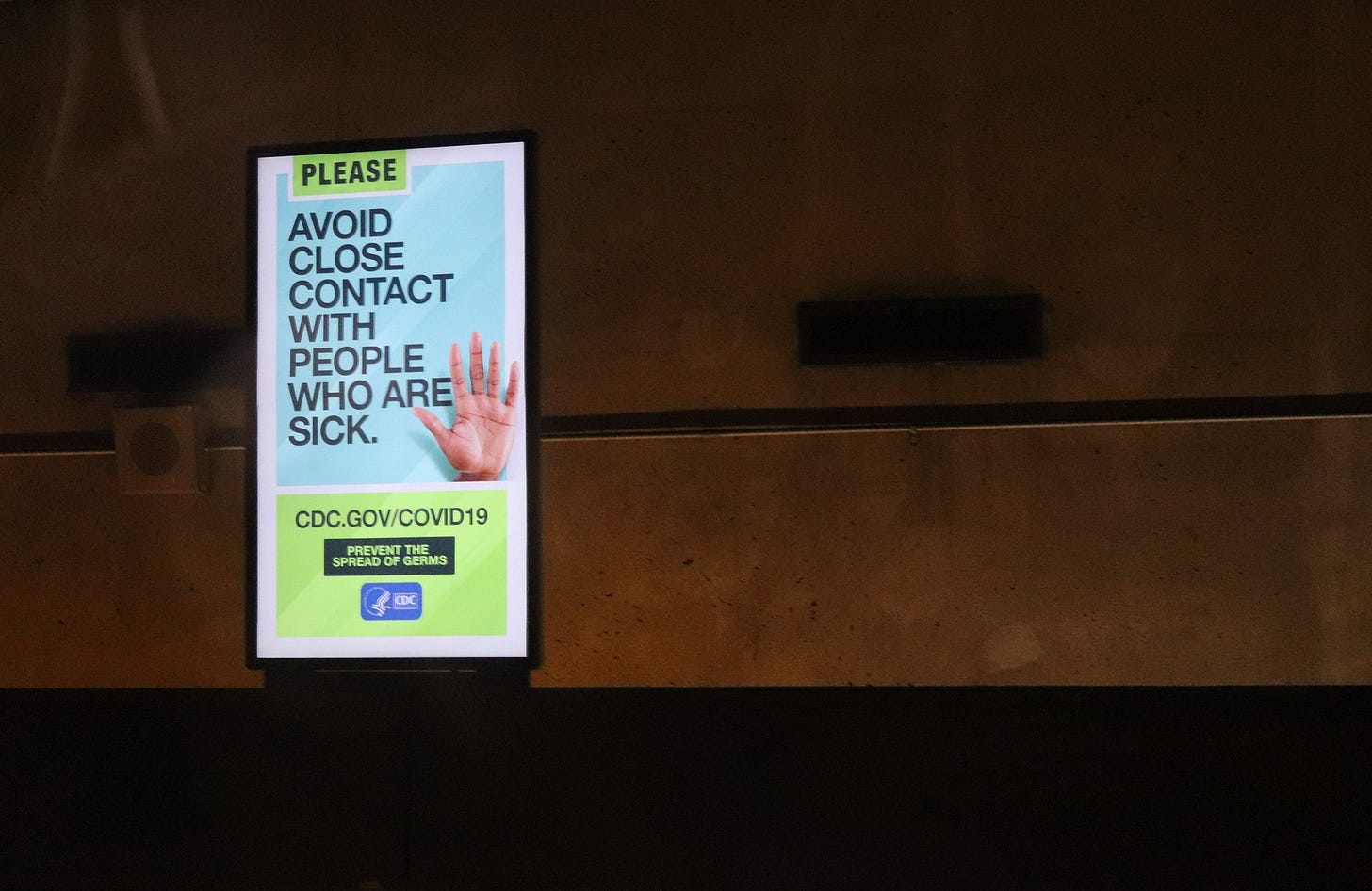The Post-Pandemic Lobbying Blitz Is Underway
Big companies are already asking for huge giveaways in the name of recovery.

If you’re a subscriber and have been enjoying this newsletter recently, please take a moment to forward it to someone else who might like it. As I hope this edition shows, tracking these issues now is really important. Just use the green button below. Thanks!
It’s quite unclear when the coronavirus pandemic is going to subside and business can begin to get back to normal. But that doesn’t mean big companies aren’t gearing up to take advantage whenever that occurs.
Readers of this newsletter know I’m concerned that once officials say things can “reopen,” in the favored parlance, large corporations are going to swoop in with offers to help jumpstart local economies — for the price of new rounds of tax breaks and other giveaways. Here we have just that: A coalition of big businesses in Washington, D.C., met with city lawmakers to argue for a slew of broad-based tax reductions in the name of getting the economy going again.
Known as DC2021, the group is circulating a series of dire predictions about the state of the city’s economy post-coronavirus. It’s asking for a one year cessation of property taxes for entertainment and hospitality-related businesses, the elimination of D.C.’s corporate income tax (known as the franchise tax) for an unspecified period of time, and a three-year moratorium on taxes related to land transfers. Costs of the total package could be as high as $1 billion, which the group wants to come out of both D.C.’s rainy day fund and from federal aid the city receives.
Who is in this coalition you ask? Some of D.C.’s biggest real estate developers, as well as the D.C. United soccer team, and, of course, Amazon, among many others.
There are also several trade organizations, including the DC Chamber of Commerce and the Hotel Association of Washington DC, which count big, national corporations among their lists of members. Many in the coalition are also on D.C.’s list of most subsidized corporations.
Now, of course, there is something to the case these business leaders are making: Loads of layoffs or folks remaining unemployed because businesses either don’t re-open or only see a fraction of their previous sales for years on end doesn’t help workers or the city.
But their proposed remedies will just help the biggest of the big consolidate market share and power, not lead to broad-based prosperity or a resilient economy based on many smaller players.
For instance, an across-the-board corporate income tax elimination helps the biggest companies more, since they pay the highest rates, and is useless to small businesses making little to no profits.
As Tazra Mitchell, policy director at the D.C. Fiscal Policy Institute, explained, the proposed property tax break won’t help small businesses either — instead, it will pass through to real estate developers who tend to own the land on which those businesses are built. A land transfer tax moratorium does the same.
To sum it up, DC2021’s plan will merely concentrate money and power into the hands of those who already have a lot of both, spending precious resources on big companies that bounce back quickly, instead of on truly-in-need small businesses — not to mention public health or any other initiative necessary to recovery.
You can bank on the DC2021 effort being replicated in city halls and state capitols all across the country. In every crisis, there’s an opportunity, and the big guys are going to try to seize it.
These efforts come at the same moment that cities and states have been left hanging by Congress. The initial round of aid they were granted was literally hundreds of billions of dollars less than what is necessary, and unless something changes, the next coronavirus rescue package will pass them by almost entirely.
The Federal Reserve is stepping in to help the very biggest cities and counties by buying their bonds — and may be open to extending that effort to smaller locales — but local governments shouldn’t be subject to the deliberations of the central bank when it comes to avoiding crippling budget cuts. Congress has the capacity to provide dollars now and just hasn’t.
So desperate cities and states are going to be told by big corporations that they have no choice other than to let those businesses consolidate more power in order to generate economic activity and start some level of revenue coming in again. Abandoned by the feds, I’d bet many local lawmakers will think they have to comply. It could all get very ugly out there if there isn’t a counterweight making the case for the little guys.
Thanks for reading this edition of Boondoggle. If you don’t subscribe already, just click the green button below.
If you liked this post, take a moment and click the little heart under the headline or below. It helps.
If you’re already a subscriber, please forward this around to friends, family, neighbors, or whoever you think might like it, and tell them to sign up too.
Finally, if you’d like to pick up a copy of my book, The Billionaire Boondoggle, go here. Thanks again!
— Pat Garofalo


Good point: once again, the corporate welfare hand is extended! Even more so, corporate lobbyists are at the trough.... Welcome to Corporate America.